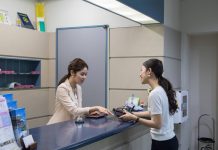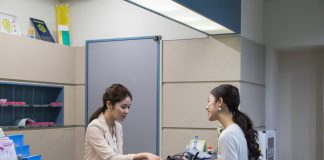- Dear Media Friends, Microsoft Singapore and Singapore Polytechnic (SP) are enhancing the world of education with the Microsoft HoloLens 2. The school will be using this holographic technology to empower their students of selected diplomas in the School of Chemical & Life Sciences (CLS) and its new Common Science Programme. If you would like additional comments from Microsoft or Singapore Polytechnic, feel free to reach out to us directly. Thank you!
SINGAPORE – Media OutReach – 5 January 2023 – Microsoft is using its holographic technology to support Singapore Polytechnic (SP)’s School of Chemical & Life Sciences (CLS) in hybrid learning and empowering students of selected diplomas and its new Common Science Programme. The adoption of the HoloLens 2 is part of SP’s focus to create a more dynamic and interactive learning environment where students can develop critical skills to thrive in the real world.
The mixed reality technology will benefit over 500 CLS learners annually including Pre-Employment Training (PET) and Continuing Education & Training (CET), which focuses on mid-career professionals and jobseekers.
Fostering a culture of continuous learning and future-readiness
The HoloLens 2 technology allows students to interact with virtual representations of physical lab instruments, science concepts, and learning scenarios. These interactive simulations are critical in helping them acquire industry-relevant knowledge and build confidence in using the instruments and applying the lab processes before competency assessments.
Mixed reality technology also helps to improve knowledge retention and encourages engagement for students with different learning styles. The sensory, auditory and visual input from the VR simulations provides students with experiences that closely resemble interactions in the real world. For kinesthetic learners who rely on physical interaction for better learning, the HoloLens 2 allows them to familiarise with the instruments before they enter into a quality assurance / quality control laboratory. This also enables SP students to take greater ownership in their learning without needing to be in physical contact with the equipment in the real world.
“Holographic technology tools are very useful in building the confidence of users who are new to analytical instruments. The majority of the users are graduates from secondary school, and have never had to perform laboratory works with such complexity. To date, SP has developed a suite of digital solutions for the training of analytical instrumentation. As part of our continual efforts to enhance the learning experience of our students, we have transited from the use of simple e-learning packages to the holographic 3D teaching tool today,” said Dr Charmaine Tan Yen Ling, Course Chair, Common Science Programme, School of Chemical & Life Sciences.
Transforming learning environments with trusted technology
In a hybrid-learning environment, technology plays a critical role in enabling remote learning and assessment. With the HoloLens 2, educators can bring textbook science to life effortlessly and enrich learning curricula with immersive content. Beyond the classroom, this technology allows lecturers to demonstrate extreme parameters and show how it will affect the results and data accuracy.
The HoloLens packages enable SP to expand their lab facilities beyond physical laboratories to the virtual mixed-reality realm, enabling training that was previously limited by the availability of instruments.
“Equipping the next generation with relevant skills and knowledge is key to ensuring the readiness of our workforce as we focus on closing the gap between skilling and employability. Through partnerships with institutes of higher learning like Singapore Polytechnic, we can help to relentlessly drive innovation and steer Singapore toward broad, inclusive economic growth,” said Lum Seow Khun, Director, Public Sector Group, Microsoft Singapore.
Shaping the future of hybrid education
Apart from the Common Science Programme, HoloLens 2 will be used in other academic courses including Applied Chemistry, Biomedical Science, Food Science & Technology and Perfumery & Cosmetic Science. The introduction of this technology to its curriculum is part of SP’s ongoing efforts to help its educators do more with less and empower students to learn actively across a hybrid environment.
To go a step further, SP plans to create more learning opportunities in the virtual space such as ‘over-the-shoulder coaching’ and ‘e-assessment tool’. SP aspires to have technological solutions that cater to a wide spectrum of students with different learning needs, as well as to explore the possibilities in how we can conduct hands-on assessment remotely and fairly.
Hashtag: #Microsoft
The issuer is solely responsible for the content of this announcement.






















